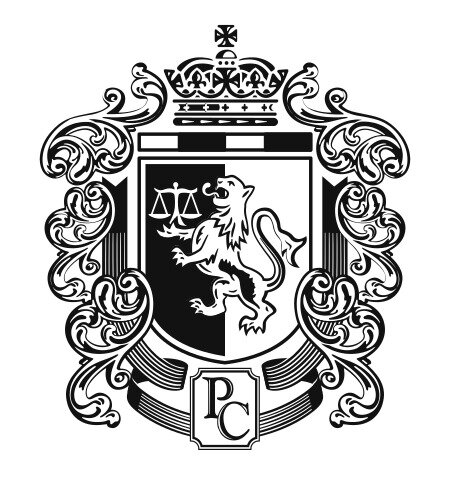Best Lawsuits & Disputes Lawyers in Toronto
Share your needs with us, get contacted by law firms.
Free. Takes 2 min.
List of the best lawyers in Toronto, Canada
Canada Lawsuits & Disputes Legal Articles
Browse our 1 legal article about Lawsuits & Disputes in Canada written by expert lawyers.
- Small Claims Court in Ontario Canada - Guide & Process FAQ
- The financial limit for filing a lawsuit in Ontario Small Claims Court is $35,000 CAD, excluding interest and court costs. Plaintiffs generally have exactly two years from the date the dispute arose to file their claim under the Ontario Limitations Act. Winning a judgment does not mean the court will... Read more →
About Lawsuits & Disputes Law in Toronto, Canada
In Toronto, as in all of Canada, lawsuits and disputes encompass a broad range of legal issues, from personal injury claims and contract disputes to commercial litigations and class action suits. The Canadian legal system is based on English Common Law, meaning that past judicial decisions play a significant role in interpreting and applying the law. In Ontario, the Superior Court of Justice is the primary forum for major lawsuits and disputes, while smaller claims might be heard in the Small Claims Court. Resolving a dispute can involve negotiation, mediation, arbitration, or litigation depending on the circumstances.
Why You May Need a Lawyer
There are several common situations where individuals or businesses might require legal help in the realm of lawsuits and disputes. These scenarios include contract disagreements, property lawsuits, business disputes, personal injuries, landlord-tenant issues, and more. Additionally, if you have been served with a lawsuit, you will need legal guidance to understand your rights and responsibilities, and to ensure you respond correctly within the mandated timeline. A lawyer can help streamline these processes, provide valuable advice, protect your rights, and help you achieve the best possible outcome.
Local Laws Overview
Local laws in Toronto are influenced by both federal and provincial statutes. Key laws relating to disputes and lawsuits include the Limitations Act, which outlines time limits for bringing a lawsuit, and rules of the Ontario Court of Justice or Superior Court, which dictate procedural aspects of a lawsuit. Additionally, Ontario's Human Rights Code, Residential Tenancies Act, and the Employment Standards Act may come into play depending on the nature of the dispute. Local bylaws in Toronto, including property standards and noise control, also influence disputes living in the city.
Frequently Asked Questions
What is the time limit to file a lawsuit in Toronto?
Most lawsuits in Toronto must be initiated within two years of when the claimant first became aware of the issue, according to the Limitations Act.
How does the Small Claims Court work?
Small Claims Court deals with disputes up to $35,000. This includes unpaid accounts for goods or services, unpaid loans, damage claims, and breaches of contract.
What cost can I expect when filing a lawsuit?
The cost for filing a lawsuit varies greatly. Costs comprise court fees, lawyer's fees, and other expenses like hiring expert witnesses.
Can I represent myself in a lawsuit?
Yes, you can represent yourself in a lawsuit. However, it's generally recommended to seek legal advice due to the complicated nature of laws and court procedures.
I have been served with a lawsuit. What should I do?
You should respond to the claim by filing a Statement of Defence within the required time limit (usually 20 days). Seek legal advice immediately.
What is alternative dispute resolution?
Alternative Dispute Resolution (ADR) processes like mediation, negotiation, or arbitration can be used to resolve disputes without going to court.
Can a lawyer refuse to take my case?
Yes, lawyers can refuse to take your case for various reasons such as conflict of interest, lack of expertise in the area, or if they feel the claim lacks merit.
What is a class action lawsuit?
A class action lawsuit is one in which a large number of people with a common complaint sue as a group.
What is a contingency fee arrangement?
In a contingency fee arrangement, a lawyer is only paid fees if the case is successful. It is commonly used in personal injury cases.
What does 'litigation' mean?
'Litigation' refers to the process of taking legal action - the proceedings initiated between two opposing parties to enforce or defend a legal right.
Additional Resources
The Ministry of the Attorney General in Ontario provides resources for those involved in a lawsuit or dispute. The Law Society of Ontario offers referrals for lawyers and paralegals. Legal clinics like Pro Bono Ontario provide free legal advice for individuals who cannot afford a lawyer.
Next Steps
If you need legal assistance in lawsuits and disputes in Toronto, the first step is to consult a legal professional. Seek referrals from trusted friends or contact the Law Society of Ontario. Before hiring a lawyer, ensure they have relevant experience in your particular type of dispute. Finally, be proactive in understanding your legal rights and obligations. It is advisable to get an initial consultation (which is often free) with a lawyer to discuss your case.
Lawzana helps you find the best lawyers and law firms in Toronto through a curated and pre-screened list of qualified legal professionals. Our platform offers rankings and detailed profiles of attorneys and law firms, allowing you to compare based on practice areas, including Lawsuits & Disputes, experience, and client feedback.
Each profile includes a description of the firm's areas of practice, client reviews, team members and partners, year of establishment, spoken languages, office locations, contact information, social media presence, and any published articles or resources. Most firms on our platform speak English and are experienced in both local and international legal matters.
Get a quote from top-rated law firms in Toronto, Canada — quickly, securely, and without unnecessary hassle.
Disclaimer:
The information provided on this page is for general informational purposes only and does not constitute legal advice. While we strive to ensure the accuracy and relevance of the content, legal information may change over time, and interpretations of the law can vary. You should always consult with a qualified legal professional for advice specific to your situation.
We disclaim all liability for actions taken or not taken based on the content of this page. If you believe any information is incorrect or outdated, please contact us, and we will review and update it where appropriate.
Browse lawsuits & disputes law firms by service in Toronto, Canada
Toronto, Canada Attorneys in related practice areas.















